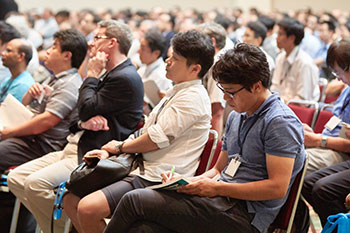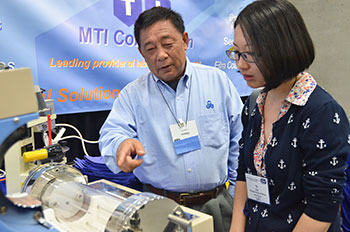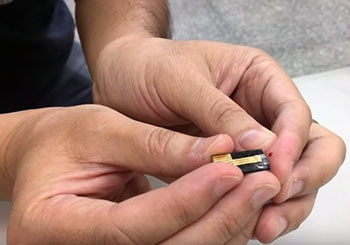Deadline for Submitting Abstracts
March 16, 2018
Submit today!
 Topic Close-up #4
Topic Close-up #4
Symposium A07: Battery Safety and Failure Modes
Symposium Focus: Long life, high power, reliable and safe lithium-ion batteries are needed for new consumer electronics, vehicle and grid storage applications. Demands for increased battery functionality, makes the severity of a potential battery safety incident a growing risk for emerging lithium-ion battery technologies. The objective of this symposium is to address lithium-ion battery durability, reliability and safety from a materials and cell design perspective with the goal of reducing the severity of an energetic safety incident. Better understanding of battery failure modes and effects could enable cell and system design improvements, performance enhancements and facilitate regulatory approvals of advanced lithium-ion battery power systems.


 Deadline Extended: March 19, 2018
Deadline Extended: March 19, 2018 The 2018 Society elections are upon us and ECS wants you to learn more about the candidates, from the candidates. All voting members are eligible to participate via electronic proxy. You would have received an email with voting instructions January 15, 2018.
The 2018 Society elections are upon us and ECS wants you to learn more about the candidates, from the candidates. All voting members are eligible to participate via electronic proxy. You would have received an email with voting instructions January 15, 2018.
 Don’t miss the opportunity to sponsor or exhibit at our largest spring meeting ever! Join us as ECS heads to the Seattle Sheraton and Washington State Convention Center in Seattle, WA from May 13-17, 2018, for the 233rd ECS Meeting. This is a can’t miss event for electrochemists and solid state scientists, featuring over 2,600 abstracts in over 50 symposia.
Don’t miss the opportunity to sponsor or exhibit at our largest spring meeting ever! Join us as ECS heads to the Seattle Sheraton and Washington State Convention Center in Seattle, WA from May 13-17, 2018, for the 233rd ECS Meeting. This is a can’t miss event for electrochemists and solid state scientists, featuring over 2,600 abstracts in over 50 symposia. Engineers are developing a new method of processing nanomaterials that could lead to faster and cheaper manufacturing of flexible, thin film devices, such as touch screens and window coatings.
Engineers are developing a new method of processing nanomaterials that could lead to faster and cheaper manufacturing of flexible, thin film devices, such as touch screens and window coatings. A new process for growing wafer-scale 2D crystals could enable future super-thin electronics.
A new process for growing wafer-scale 2D crystals could enable future super-thin electronics.